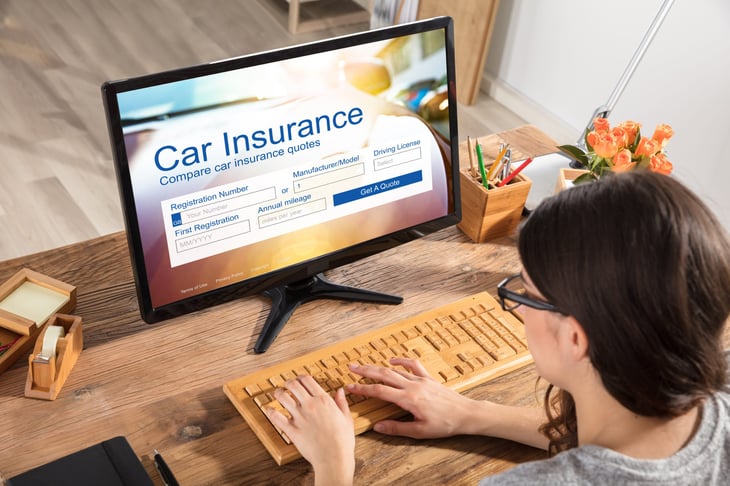
One of the best ways to make sure you’re paying your bills and reaching your goals is to use autopay.
Autopay and auto-transfers can keep you on track with your finances by helping you do what’s best for your money without having to think about it. You don’t have to worry about bills while you’re on vacation or remember to set aside cash for your most important financial goals.
Here are some items you should have on autopay.
1. Retirement contributions

Your future self will thank you when you make sure your retirement contributions are taken care of automatically. If you don’t have the option for an automatic payroll contribution to a 401(k), consider setting up an auto-transfer from your checking account to an IRA.
Figure out how much you need to set aside to reach your retirement account goals in the future and have that money automatically withheld from your paycheck or transferred to a tax-advantaged account like an IRA.
You won’t notice the money is gone, and you’ll be building wealth for the future without thinking about it.
2. Car insurance

Remembering to pay your car insurance bill is vital if you want to avoid a costly lapse in coverage. Set up autopay for your car insurance, and you won’t have to worry about missing a payment, even if you’re on vacation.
Plus, some insurers offer an autopay discount. I receive a discount for having my insurance premium on monthly autopay, saving me about $180 per year.
3. Utility bills

Electricity, natural gas, water, sewer, internet and other utility bills can often be put on autopay, ensuring that you keep uninterrupted service. Rather than remembering to log on and pay each month, you can have your bills paid automatically.
Consider using a rewards credit card to make utility payments, and you could potentially earn cash back or airline miles each time your autopay is processed. Just have a plan to pay off the credit card each month so you avoid interest charges.
4. Credit card bills

You can also potentially autopay your credit card bill. My credit cards all allow me to do so. I can choose to pay the entire statement balance automatically or choose to pay the minimum.
It might make sense to at least set up autopay to cover your minimum payment so that you don’t end up with a late fee. When you set up a credit card autopay this way, you know you’re covered for the bare minimum, and you can make extra payments later, if needed.
5. Mortgage or rent

If you have a mortgage payment, check with your lender to see if you can set up autopay. This way, you don’t have to worry about paying late or missing a payment. Some lenders also offer bi-weekly payments, allowing you to pay down your loan faster and save money in interest.
This can be an easy way to budget an early mortgage payoff but be aware that some lenders charge a fee to enroll borrowers in a bi-weekly payment plan.
Autopay might also work with rent payments. Some landlords and rental management companies accept credit card payments and allow you to set up autopay.
If that’s not an option, you could check with your bank to set up bill pay. For example, I use my bank’s bill pay feature to automatically cut a check to my landlord each month. I don’t ever have to worry about being late.
6. Charitable contributions

Some people make giving part of their regular financial plan. If you’re interested in giving on a regular basis, consider setting up autopay or auto-transfers to your favorite charity.
I give to three different local charities, and I’ve been able to set up automatic payments to each of them through their websites. Some of them put the autopay on my credit card while others are set up through automatic monthly PayPal payments.
This can also work if you’re interested in tithing to your church. In fact, in the past, I’ve used my bank’s bill pay feature to send a regular tithing check to my church congregation, and I currently support a local church with automatic monthly PayPal contributions.
7. Estimated taxes

If you’re self-employed, you might need to pay quarterly estimated taxes. The IRS lets you set up regular monthly or quarterly payments, allowing you to easily stay on track.
Making your estimated payments can help you avoid underpayment penalties come tax time, as well as help you smooth your business finances throughout the year. Check with your state to find out if you need to make estimated tax payments at the state level as well.
My business makes use of Gusto to send payments to federal and state authorities automatically. With this setup, someone else calculates my estimated taxes and takes the money from my business account and sends it on automatically. This makes my life easier at tax time.
Caveat: You still need to check your money

Even with items on autopay, you still need to periodically check in with your money. First of all, you want to make sure your automatic bill amounts are correct. Mistakes happen, and you don’t want to be overpaying or underpaying.
Next, you want to make sure your automatic payments are still coming out. If you decide to cancel a subscription or if you choose to stop donating to a charity, you need to check to make sure the autopay is no longer being taken from your account.
Finally, you need to make sure you have enough money in your account to cover your autopay and auto-transfer transactions. Plan ahead and make sure you have enough in your budget. Consider maintaining a buffer in your main account to avoid overdraft fees and returned payments.





Add a Comment
Our Policy: We welcome relevant and respectful comments in order to foster healthy and informative discussions. All other comments may be removed. Comments with links are automatically held for moderation.